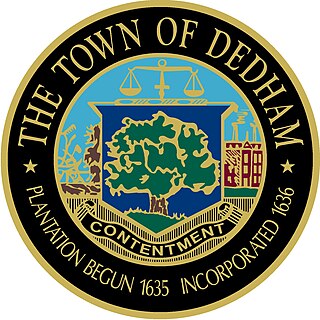Related Research Articles

John Taylor (1694–1761) was an English dissenting preacher, Hebrew scholar, and theologian.

The Bangorian Controversy was a theological argument within the Church of England in the early 18th century, with strong political overtones. The origins of the controversy lay in the 1716 posthumous publication of George Hickes's Constitution of the Catholic Church, and the Nature and Consequences of Schism. In it, Hickes, as Bishop of Thetford, on behalf of the minority non-juror faction that had broken away from the Church of England after the Glorious Revolution, excommunicated all but the non-juror churchmen. Benjamin Hoadly, the Bishop of Bangor, wrote a reply, Preservative against the Principles and Practices of Non-Jurors; his own Erastian position was sincerely proposed as the only test of truth.

Sir Thomas Craig of Riccarton was a Scottish jurist and poet.
Peter Baro (1534–1599) was a French Huguenot minister, ordained by John Calvin, but later in England a critic of some Calvinist theological positions. His views in relation to the Lambeth Articles cost him his position as Lady Margaret's Professor of Divinity at the University of Cambridge. He was a forerunner of views, to be called Arminian or Laudian, more common a generation later in England.
Richard Crakanthorpe (1567–1624) was an English Anglican priest, remembered both as a logician and as a religious controversialist.
John Downame (Downham) (1571–1652) was an English Puritan clergyman and theologian in London, who came to prominence in the 1640s, when he worked closely with the Westminster Assembly. He is now remembered for his writings.
Alexander Gill the Elder, also spelled Gil, was an English scholar, spelling reformer, and high-master of St Paul's School, where his pupils included John Milton. He was the author of an English grammar, which was written, however, in Latin.
Nicholas Bownde, Bownd or Bound was an English clergyman, known for his Christian Sabbatarian writings.
Adam of Barking, was a Benedictine monk and religious poet who left a number of writings including De Serie Sex Ætatum which runs to 15,000 lines of hexameter. He belonged to the abbey of Sherborne in Dorset.

John Allin, or John Allen (1596–1671), was one of the patriarchs of New England associated with the foundation of Dedham, Massachusetts.
The dissenting academies were schools, colleges and seminaries run by English Dissenters, that is, those who did not conform to the Church of England. They formed a significant part of England's educational systems from the mid-seventeenth to nineteenth centuries.
The Tracts for the Times were a series of 90 theological publications, varying in length from a few pages to book-length, produced by members of the English Oxford Movement, an Anglo-Catholic revival group, from 1833 to 1841. There were about a dozen authors, including Oxford Movement leaders John Keble, John Henry Newman and Edward Bouverie Pusey, with Newman taking the initiative in the series, and making the largest contribution. With the wide distribution associated with the tract form, and a price in pennies, the Tracts succeeded in drawing attention to the views of the Oxford Movement on points of doctrine, but also to its overall approach, to the extent that Tractarian became a synonym for supporter of the movement.
Thomas Palfreyman was an English author and musician.
Robert Tyrwhitt (1735–1817) was an English academic, known as a Unitarian.
John Bate was an English or Welsh theologian and philosopher.
John Barwick was an English theologian.
John Garbrand or Herks (1542–1589) was an English cleric, a prebendary of Salisbury Cathedral and friend of Bishop Jewell.
Leonard Twells (1684?–1742) was an English cleric and theological writer.
References
- . Dictionary of National Biography . London: Smith, Elder & Co. 1885–1900.
- Attribution
![]() This article incorporates text from a publication now in the public domain : "Barningham, John". Dictionary of National Biography . London: Smith, Elder & Co. 1885–1900.
This article incorporates text from a publication now in the public domain : "Barningham, John". Dictionary of National Biography . London: Smith, Elder & Co. 1885–1900.